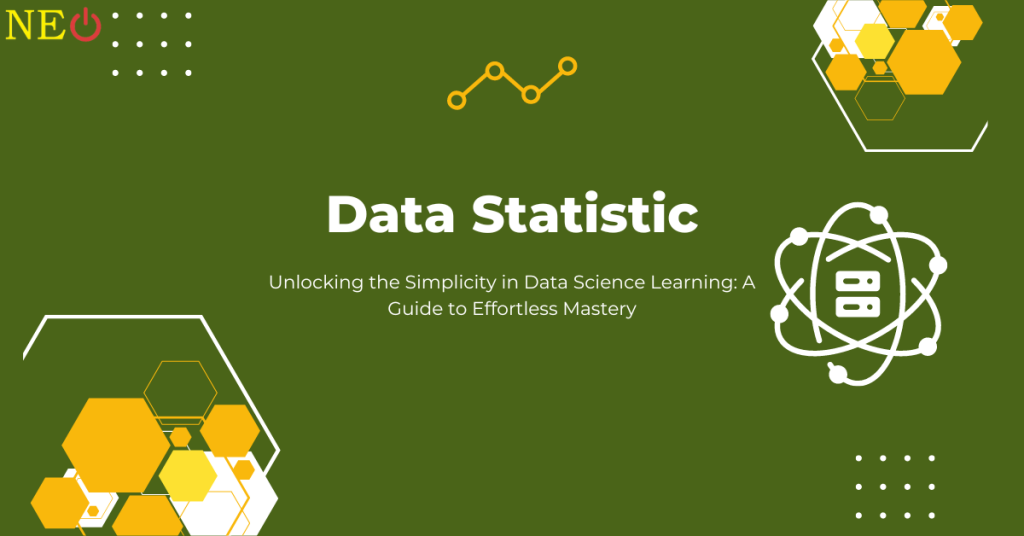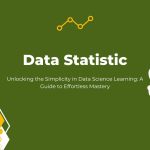In today's data-driven world, the role of a data scientist has become increasingly vital across industries. With the ability to extract valuable insights from vast amounts of data, data scientists play a crucial role in informing decision-making processes and driving innovation. However, the journey to becoming a data scientist is neither easy nor fast. It requires a combination of education, experience, and perseverance. In this comprehensive guide, we'll explore the steps you can take to embark on this rewarding career path, along with the challenges and opportunities along the way.
The Importance of Hands-On Experience
One of the fundamental pillars of becoming a data scientist is gaining practical experience working with data. This hands-on exposure allows aspiring data scientists to develop a deep understanding of data analysis techniques and methodologies. Opportunities for gaining experience include internships, volunteer projects, or independent data analysis endeavors. By immersing oneself in real-world data scenarios, individuals can hone their analytical skills and gain valuable insights into the complexities of working with data.
The Role of Education
While practical experience is invaluable, a solid educational foundation is also essential for aspiring data scientists. Many professionals in this field hold advanced degrees, such as master's or PhDs, in fields like computer science, statistics, or data science. These programs provide students with rigorous training in statistical analysis, machine learning, programming languages, and other core concepts relevant to data science. Additionally, online courses and bootcamps offer accessible avenues for acquiring specialized skills in data analysis and visualization.
Mastering Programming Languages
Proficiency in programming languages such as Python and R is a hallmark of a successful data scientist. These languages are widely used for data manipulation, analysis, and visualization tasks. Aspiring data scientists should invest time and effort in mastering these languages, either through formal coursework, self-study, or practical application in real-world projects. Additionally, familiarity with SQL for database querying and manipulation can further enhance one's skill set in data science.
Building a Strong Portfolio
A robust portfolio serves as a testament to an aspiring data scientist's skills and capabilities. This portfolio may include data analysis projects, research papers, presentations, or contributions to open-source projects. Each project should demonstrate the individual's ability to tackle real-world data challenges, apply analytical techniques, and derive meaningful insights. Building a diverse portfolio not only showcases one's technical proficiency but also highlights their creativity, problem-solving prowess, and ability to communicate complex ideas effectively.
Networking and Professional Connections
Networking plays a crucial role in the journey to becoming a data scientist. Building relationships with professionals in the field can provide valuable insights, mentorship opportunities, and access to job openings. Attending industry conferences, meetups, and networking events can facilitate connections with like-minded individuals and potential employers. Additionally, online platforms such as LinkedIn and professional forums offer avenues for networking and engaging with the broader data science community.
Navigating Challenges and Overcoming Obstacles
Despite the abundance of resources and opportunities in the field of data science, aspiring professionals may encounter challenges along the way. These may include steep learning curves, fierce competition, and imposter syndrome. Overcoming these obstacles requires resilience, determination, and a growth mindset. Seeking mentorship, continuously learning and upskilling, and maintaining a strong support network can help aspiring data scientists navigate challenges and stay motivated on their path to success.
Embracing Lifelong Learning and Growth
The field of data science is dynamic and constantly evolving, requiring professionals to embrace lifelong learning and growth. Staying abreast of emerging technologies, methodologies, and industry trends is essential for remaining competitive in the field. Engaging in continuous professional development through online courses, certifications, and collaborative projects ensures that data scientists remain at the forefront of innovation and expertise.
while the journey to becoming a data scientist may be challenging, it is also immensely rewarding. By gaining hands-on experience, pursuing education, mastering programming languages, building a strong portfolio, networking, and embracing lifelong learning, aspiring data scientists can chart a successful career path in this dynamic and impactful field. With dedication, perseverance, and a passion for data-driven insights, the possibilities are limitless in the world of data science.
Also Read:Is Chatgpt able to create original blog posts?









